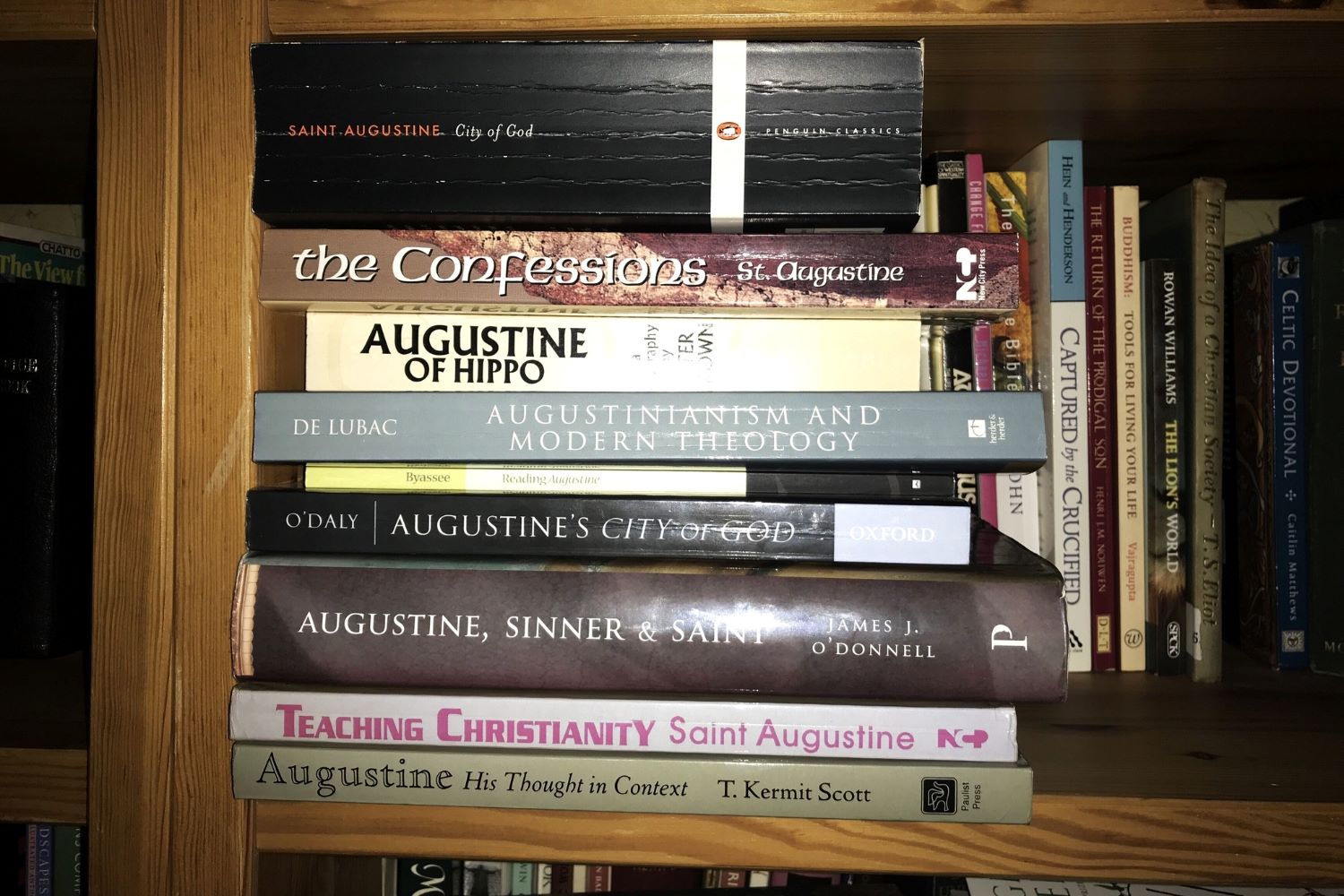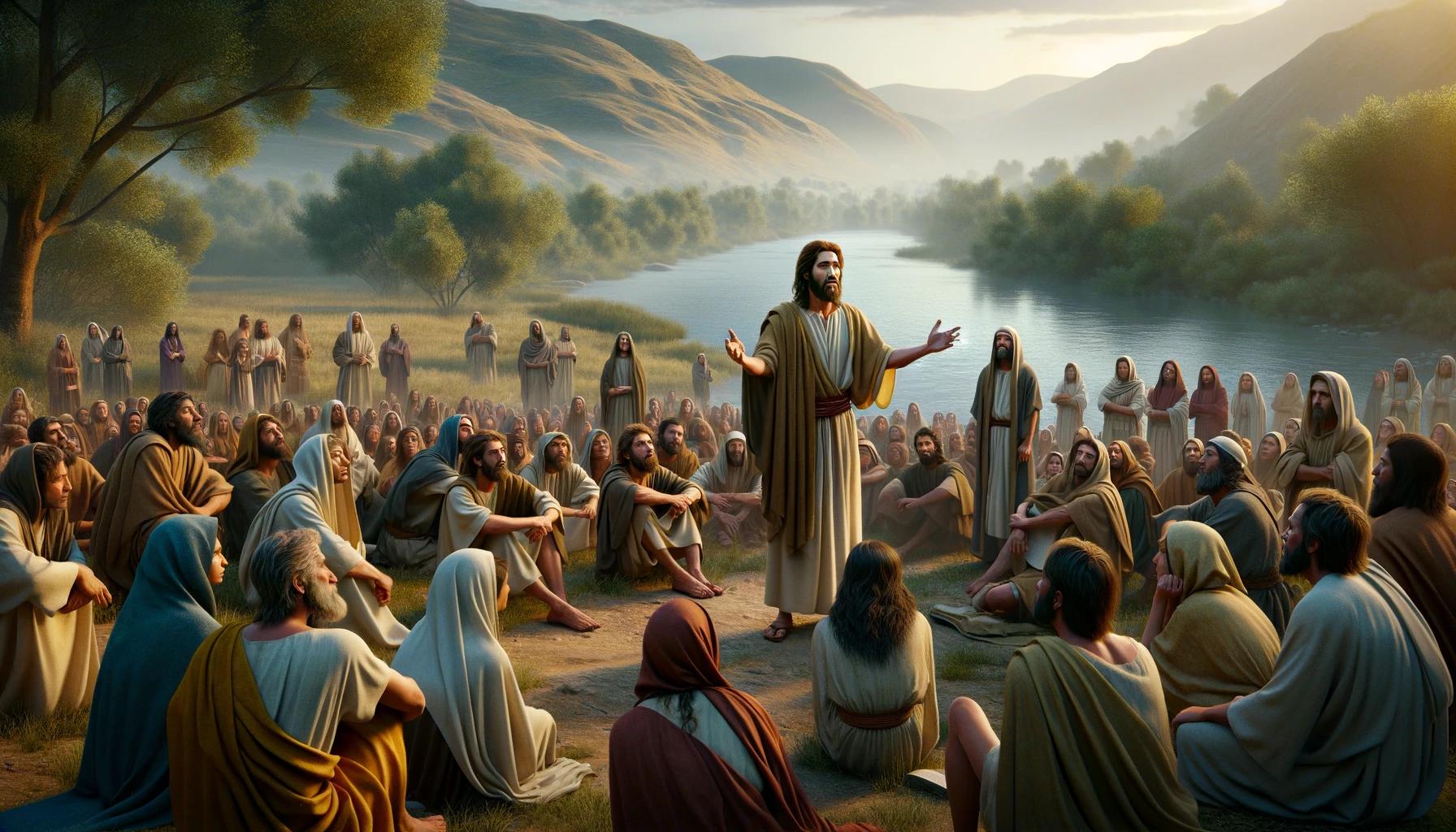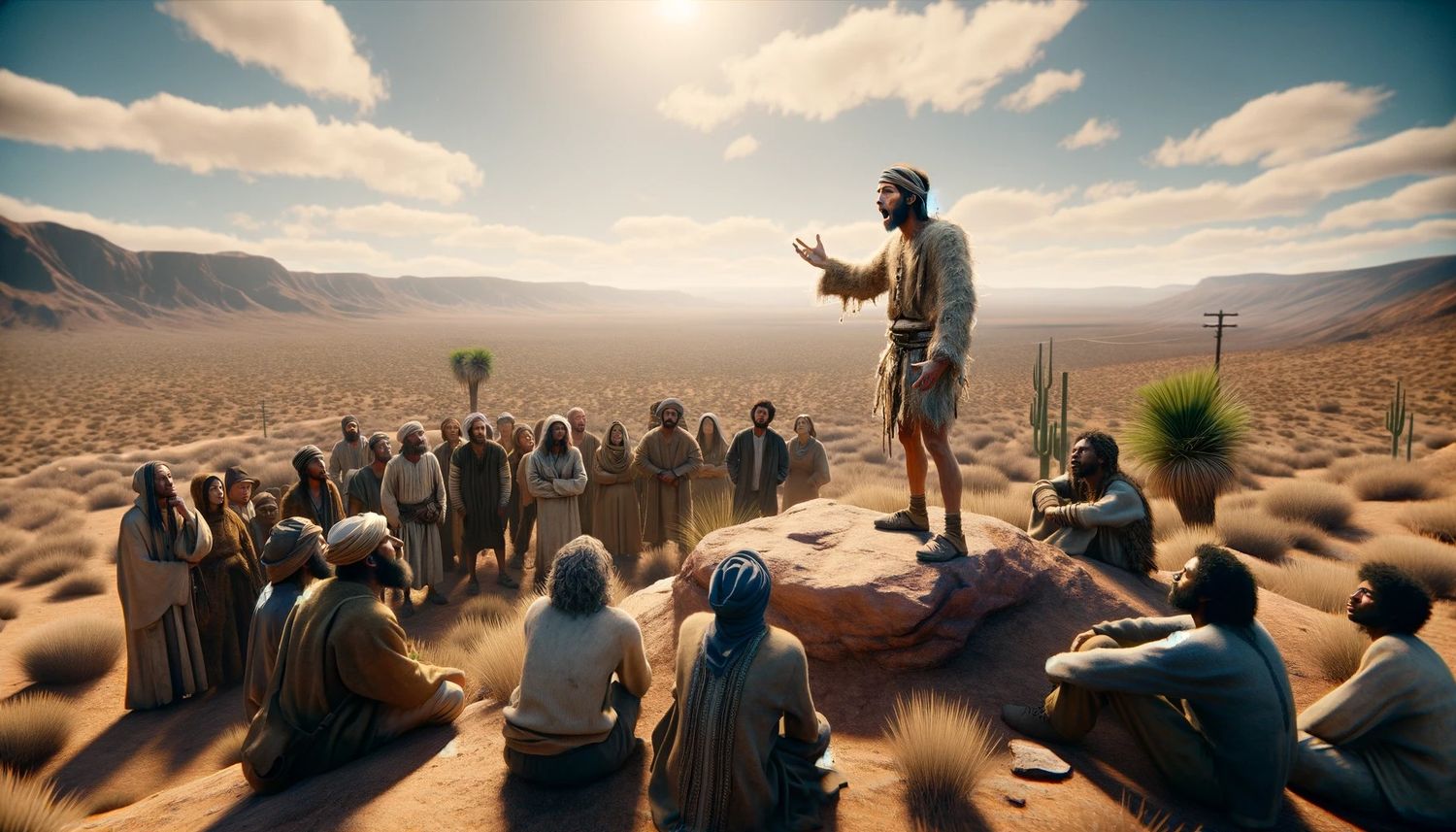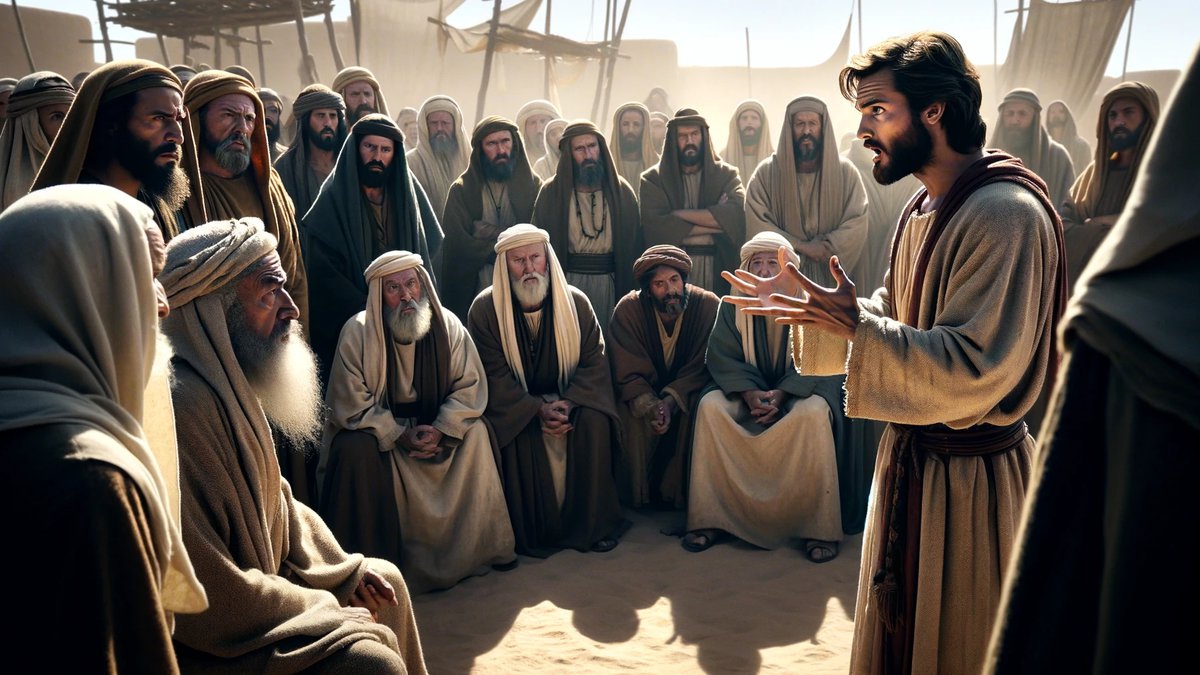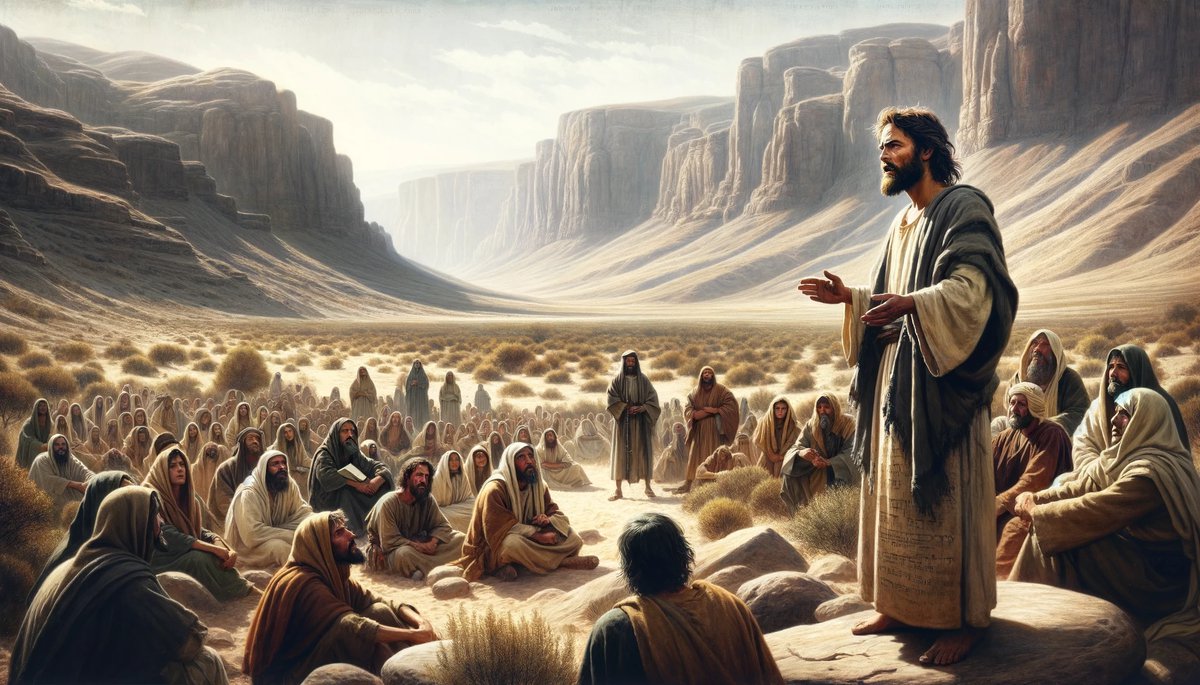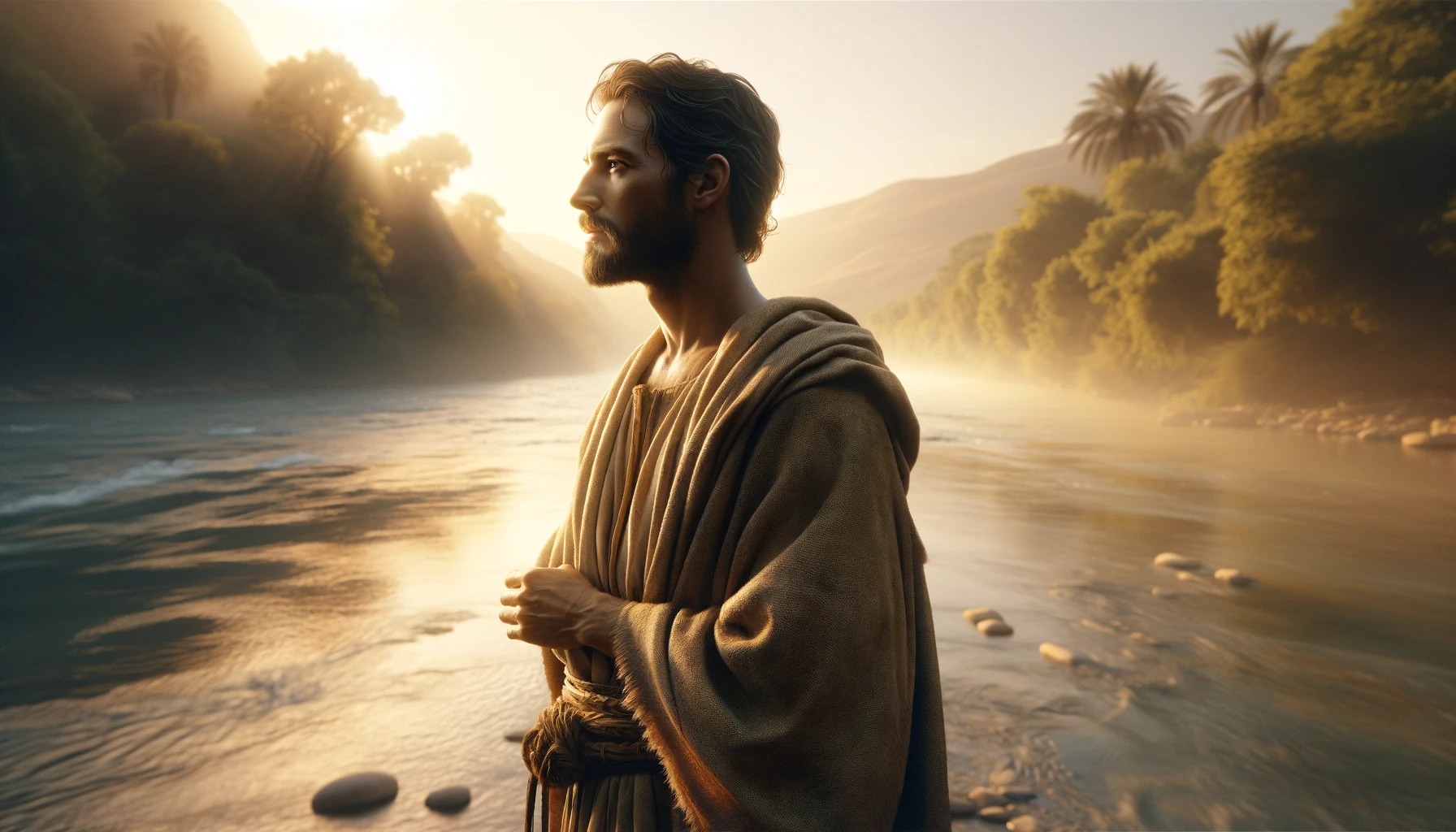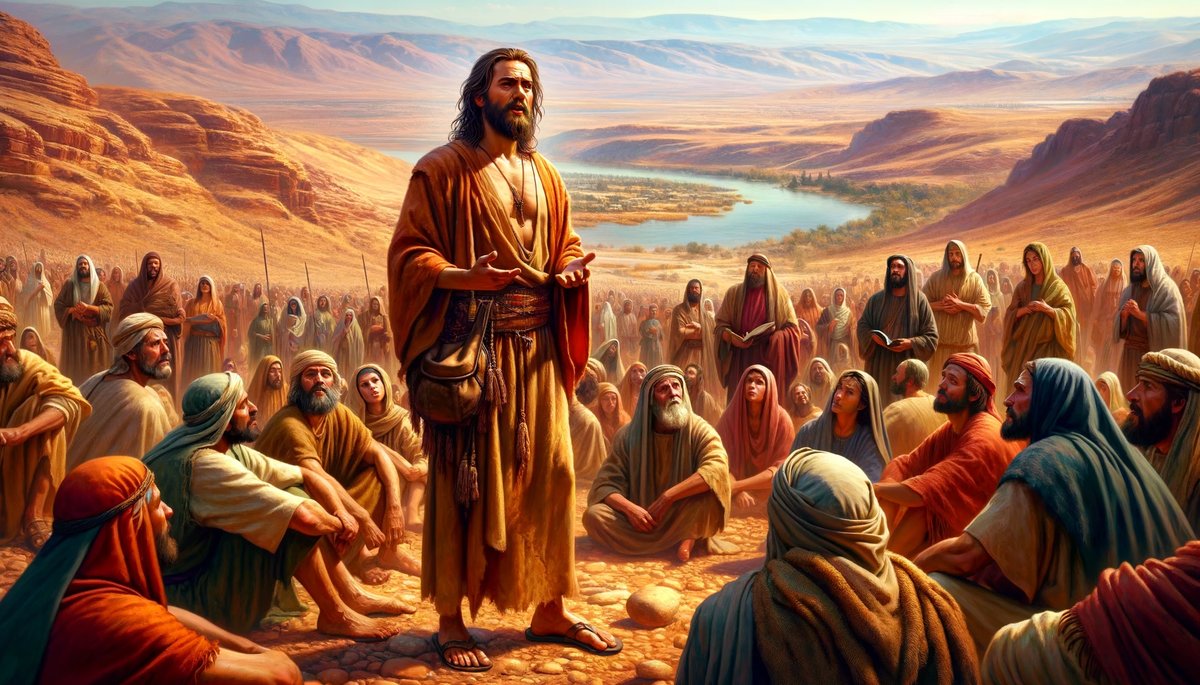Home>Theology and Spirituality>What Book Did John The Baptist Write


Theology and Spirituality
What Book Did John The Baptist Write
Published: February 19, 2024
Peter Smith, Editorial Director at Christian.net, combines deep insights into faith, politics, and culture to lead content creation that resonates widely. Awarded for his contributions to religious discourse, he previously headed a major organization for religious communicators, enhancing dialogue on faith's societal impacts.
Discover the theological insights of John the Baptist in this intriguing exploration of spirituality and theology. Uncover the book that sheds light on his teachings and beliefs.
(Many of the links in this article redirect to a specific reviewed product. Your purchase of these products through affiliate links helps to generate commission for Christian.net, at no extra cost. Learn more)
Table of Contents
Introduction
John the Baptist is a central figure in Christian theology and spirituality. His life and teachings have left an indelible mark on religious traditions and continue to inspire countless individuals seeking spiritual enlightenment. As a precursor to Jesus Christ, John the Baptist played a pivotal role in preparing the way for the coming of the Messiah. His fearless proclamation of repentance and baptism, coupled with his ascetic lifestyle, have made him a compelling and enigmatic figure in religious history.
In this article, we will delve into the life and theological contributions of John the Baptist, exploring the profound impact he had on the religious landscape of his time and beyond. Additionally, we will address the intriguing question of whether John the Baptist authored a book, examining various theories and speculations surrounding this topic. By shedding light on these aspects of John the Baptist's legacy, we aim to gain a deeper understanding of his significance within the broader context of spirituality and theological discourse.
The Life of John the Baptist
John the Baptist, also known as John the Forerunner, was a pivotal figure in the religious landscape of ancient Judea. His birth was foretold by the angel Gabriel to his father, Zechariah, a priest of the order of Abijah, and his mother, Elizabeth, who was a relative of Mary, the mother of Jesus. John's miraculous conception and birth set the stage for his extraordinary life and mission.
From an early age, John demonstrated a deep sense of spiritual calling and devotion. He embraced an ascetic lifestyle, retreating to the wilderness to seek communion with God and to prepare himself for the sacred task that lay ahead. Clad in a garment of camel's hair and subsisting on a diet of locusts and wild honey, John epitomized the essence of humility and detachment from worldly comforts.
John's ministry began with a resounding call to repentance, echoing the prophetic voices of the Old Testament. He fearlessly proclaimed the imminent arrival of the Messiah and urged the people to turn away from their sins, emphasizing the need for spiritual purification and renewal. His baptismal rituals symbolized a symbolic cleansing, signifying a commitment to lead a righteous life in anticipation of the coming kingdom of God.
One of the most iconic aspects of John's life was his encounter with Jesus Christ at the Jordan River. As Jesus approached to be baptized by John, the latter recognized the divine nature of Jesus and humbly declared, "I need to be baptized by you, and do you come to me?" (Matthew 3:14, NIV). This profound moment marked the symbolic passing of the torch from the old covenant to the new, as John bore witness to the arrival of the long-awaited Messiah.
Despite his unwavering dedication to his divine calling, John the Baptist faced opposition and ultimately met a tragic fate. His outspoken criticism of King Herod's unlawful marriage to Herodias, the wife of his brother, led to his imprisonment and eventual execution. John's martyrdom served as a testament to his unyielding commitment to truth and righteousness, solidifying his legacy as a courageous prophet and forerunner of Christ.
The life of John the Baptist stands as a testament to the power of unwavering faith, selfless devotion, and uncompromising truth. His exemplary life of humility, his bold proclamation of repentance, and his pivotal role in preparing the way for the Messiah continue to inspire and resonate with believers across the centuries, leaving an indelible mark on the tapestry of Christian spirituality and theological thought.
Theological Contributions of John the Baptist
John the Baptist's theological contributions reverberate throughout the annals of Christian history, shaping the very fabric of religious thought and practice. His profound impact transcends the boundaries of time and space, resonating with believers across generations. At the heart of John's theological legacy lies his unwavering commitment to repentance, baptism, and the imminent arrival of the Messiah.
Central to John's theological message was the call to repentance. He fervently exhorted the people to turn away from their sins and embrace a life of righteousness in preparation for the coming kingdom of God. His impassioned plea for spiritual renewal echoed the prophetic voices of the Old Testament, underscoring the timeless significance of genuine repentance as a transformative and redemptive act.
Moreover, John's baptismal rituals symbolized a profound spiritual rebirth, signifying a symbolic cleansing and a commitment to lead a life in alignment with God's will. The act of baptism, as administered by John, served as a powerful symbol of purification and spiritual readiness, foreshadowing the transformative sacrament of baptism within Christian tradition.
Furthermore, John the Baptist's pivotal role in heralding the arrival of the Messiah underscores his profound theological significance. His unwavering proclamation of the imminent coming of the long-awaited Savior served as a beacon of hope and anticipation, igniting the hearts of the faithful with the promise of redemption and salvation.
John's theological contributions also encompassed his recognition of Jesus Christ as the Lamb of God, the fulfillment of divine prophecy, and the embodiment of God's redemptive plan for humanity. His profound insight into the identity and mission of Jesus Christ laid the groundwork for the unfolding of the new covenant, marking a pivotal moment in the trajectory of salvation history.
In essence, John the Baptist's theological contributions resonate with enduring relevance, offering profound insights into the transformative power of repentance, the sacramental significance of baptism, and the prophetic anticipation of the Messiah. His steadfast commitment to truth, righteousness, and the proclamation of the kingdom of God continues to inspire and inform the theological discourse of Christianity, serving as a timeless testament to the enduring impact of his profound spiritual legacy.
The Question of Whether John the Baptist Wrote a Book
The question of whether John the Baptist authored a book has been a subject of scholarly inquiry and theological speculation for centuries. Unlike other prominent figures in the Bible, such as Moses, David, and Paul, John the Baptist is not traditionally attributed with a written work within the canonical scriptures. However, the absence of a book directly ascribed to John the Baptist has not deterred theologians and historians from exploring the possibility of his authorship of a text or the potential existence of lost writings attributed to him.
The absence of a definitive answer to this question has led to various theories and conjectures regarding the potential existence of a book or writings associated with John the Baptist. Some scholars have posited that John the Baptist may have authored a document or collection of teachings that, while not included in the canonical scriptures, could have circulated within early Christian communities or been referenced in other ancient texts. This hypothesis is rooted in the recognition of John the Baptist's influential role as a prophetic figure and his significant impact on the religious landscape of his time.
Furthermore, the enigmatic nature of John the Baptist's life and teachings has fueled speculation about the possibility of hidden or lost writings that could shed light on his theological insights, spiritual exhortations, or interactions with Jesus Christ. The quest for potential writings attributed to John the Baptist has captivated the imagination of scholars and enthusiasts alike, prompting meticulous scrutiny of ancient texts, historical records, and apocryphal literature in search of potential references to his authorship.
While the question of whether John the Baptist wrote a book remains unresolved, the enduring fascination with this inquiry underscores the profound impact of his legacy and the enduring quest to glean deeper insights into his teachings and spiritual contributions. Whether through hypothetical reconstructions of lost writings or scholarly investigations into historical references, the exploration of this question serves as a testament to the enduring intrigue and scholarly pursuit of uncovering the enigmatic facets of John the Baptist's profound influence on religious thought and spiritual discourse.
The quest to unravel the mystery of whether John the Baptist authored a book continues to inspire scholarly inquiry and theological contemplation, inviting individuals to engage in a thought-provoking exploration of the potential literary legacy of this iconic figure in Christian history.
Theories and Speculations
The absence of a definitive answer to the question of whether John the Baptist authored a book has spurred a myriad of theories and speculations within scholarly and theological circles. One prevailing theory suggests that John the Baptist may have indeed authored a written work or collection of teachings that, while not included in the canonical scriptures, could have circulated within early Christian communities or been referenced in other ancient texts. Proponents of this theory point to the influential role of John the Baptist as a prophetic figure and his significant impact on the religious landscape of his time, positing that his teachings may have been preserved in non-canonical or apocryphal writings.
Another line of speculation revolves around the potential existence of lost writings attributed to John the Baptist. This theory posits that hidden or undiscovered texts associated with John the Baptist could offer valuable insights into his theological perspectives, spiritual exhortations, or interactions with Jesus Christ. The quest for potential writings attributed to John the Baptist has spurred meticulous scrutiny of ancient texts, historical records, and apocryphal literature in search of potential references to his authorship, igniting a fervent pursuit to uncover any potential remnants of his literary legacy.
Furthermore, some scholars have explored the possibility of indirect references to John the Baptist's teachings or writings within existing ancient texts. This speculative approach involves scrutinizing historical and textual sources for allusions to John the Baptist's authorship or the transmission of his teachings through oral traditions or written accounts that may have been attributed to other figures. By delving into the intertextual web of ancient literature, scholars endeavor to discern potential traces of John the Baptist's literary influence, thereby shedding light on the enigmatic facets of his potential authorship.
The enduring fascination with the question of whether John the Baptist wrote a book has spurred a diverse array of theories and speculations, each offering a unique lens through which to contemplate the potential literary legacy of this iconic figure in Christian history. Whether through hypothetical reconstructions of lost writings, explorations of indirect references, or the quest for undiscovered texts, the pursuit of unraveling this mystery stands as a testament to the enduring intrigue and scholarly pursuit of uncovering the enigmatic facets of John the Baptist's profound influence on religious thought and spiritual discourse.
Read more: Which Book Did John The Baptist Write
Conclusion
In conclusion, the life and theological contributions of John the Baptist continue to captivate the hearts and minds of individuals seeking spiritual enlightenment and theological understanding. His unwavering commitment to repentance, baptism, and the proclamation of the imminent arrival of the Messiah has left an indelible mark on the tapestry of Christian spirituality and theological discourse. Despite the absence of a definitive answer regarding whether John the Baptist authored a book, the enduring quest to unravel this mystery underscores the enduring fascination with his profound influence on religious thought and spiritual contemplation.
The enigmatic nature of John the Baptist's life and teachings has spurred a myriad of theories and speculations, each offering a unique perspective on the potential literary legacy of this iconic figure in Christian history. Whether through the exploration of lost writings, indirect references, or hypothetical reconstructions, the quest to uncover any remnants of his potential authorship serves as a testament to the enduring intrigue and scholarly pursuit of unraveling the enigmatic facets of John the Baptist's profound influence.
Ultimately, the enduring legacy of John the Baptist transcends the confines of historical inquiry and theological speculation, resonating with timeless relevance and offering profound insights into the transformative power of repentance, the sacramental significance of baptism, and the prophetic anticipation of the Messiah. His exemplary life of humility, unwavering commitment to truth, and pivotal role in preparing the way for the Messiah continue to inspire and inform the theological discourse of Christianity, serving as a timeless testament to the enduring impact of his profound spiritual legacy.
In the quest to unravel the mystery of whether John the Baptist authored a book, scholars and enthusiasts alike are invited to engage in a thought-provoking exploration of the potential literary contributions of this iconic figure, embracing the enduring fascination with his profound influence on religious thought and spiritual contemplation. As the legacy of John the Baptist endures through the ages, his profound impact on the tapestry of Christian spirituality serves as a testament to the enduring relevance and timeless significance of his theological contributions.

